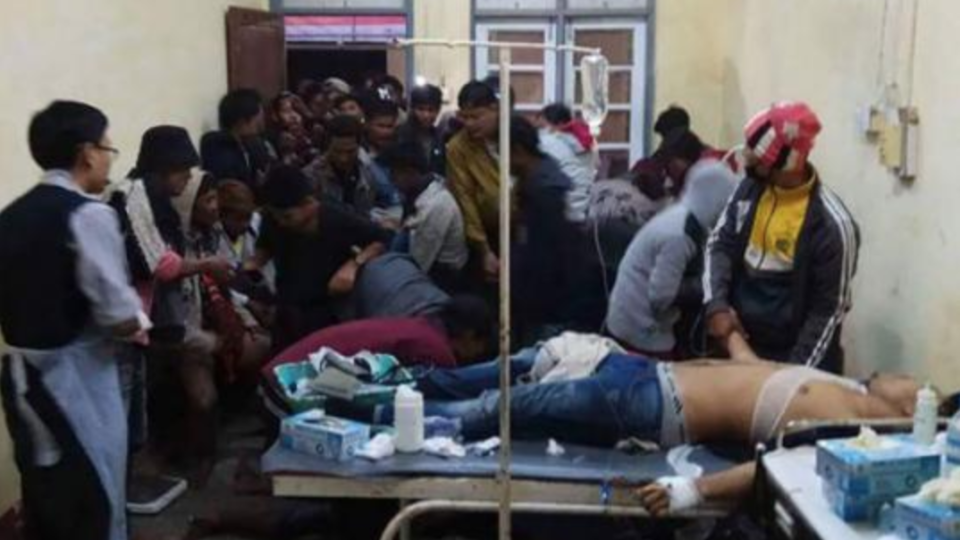Several people who were injured by police while protesting in Mrauk U last week have been placed in handcuffs while receiving treatment at hospitals in Mrauk U and Sittwe. Relatives and local politicians have expressed worry that the patients’ restraints, aside from being unnecessary, could harm their chances of recovery.
“This morning, the police handcuffed the patients and moved them to the prison [ward of the] hospital. The patients have not recovered from their injuries yet. The patients cannot escape anyway because they cannot walk. I would like to urge officials to meet with patients,” a relative of one of the victims told Eleven on Jan. 24.
Several of the patients received gunshot wounds when police opened fire on a crowd of thousands of protesters that had gathered on Jan. 16 to protest the cancellation of a Rakhine festival by local authorities and the arrest of popular Rakhine nationalist politician Dr. Aye Maung.
Four of the injured protesters are receiving treatment the Mrauk U hospital, while eight were sent to Sittwe. Four of those eight are unable to walk.
Aside from the 12 who were injured, at least seven protesters were killed. Rakhine State police say they only aimed at the protesters’ feet, but rights groups (and photographic evidence) say some of the victims were shot in the head, chest, and back.
Tun Aung Kyaw, a leader of the Rakhine nationalist Arakan National Party, told Eleven: “From a social point of view, it is assumed that the handcuffing of seriously injured patients may hamper their health.”
Mrauk U lawmaker Tun Tha Sein said: “Patients should get medical treatment freely. The police can deploy more police officers if they fear that patients may run away.”
Former political prisoner Tun Kyi said: “I think since 1962, the oppression of citizens under the guise of security measures would amount human rights violations. Hospitalized patients should not be handcuffed or legcuffed from a human rights point of view.”
The massacre is under investigation by police, who claim that 20 police officers were injured by protesters, but Rakhine State police chief Colonel Aung Myat Moe has already said publicly that the protesters were at fault for the violence.




